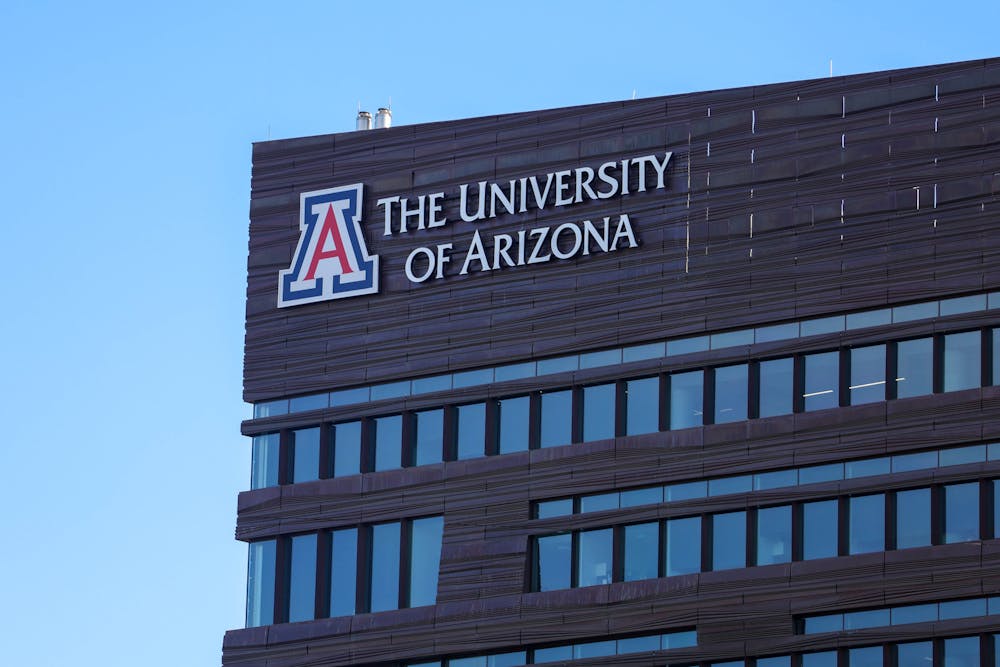The University of Arizona is experiencing a financial crisis that has been cause for concern on multiple levels at at the university.
The crisis is in the amount of "cash on hand," money and investments that can be quickly turned into cash for unexpected issues. UA should have enough cash on hand for 156 days, but the school only has enough funds for 97 days, approximately $240 million short of what is needed.
The financial model that the school uses to calculate the funds was reported to have had "miscalculations" which led UA President Robert Robbins, and Chief Financial Officer Lisa Rulney, to explain the situation the school is going through to the Arizona Board of Regents, in a meeting on Nov. 2.
"I want (the board) to know that when we were forecasting 156 days cash on hand (in June) I was not hiding the ball or trying to obfuscate a problem that we have at the University of Arizona," Rulney said. "This method that we have used for more than ten years has always been reasonably close to actuals. Unfortunately, this year it gave us an estimate that ended up being 30% over actuals."
Rulney added that "rising costs" and "inflationary increases" are outpacing its revenue gains. In order to fix and build funds, Robbins said that the school plans on pausing hiring, delaying pay raises, reshaping how the school provides financial aid for students and potentially cutting sports programs.
"There are a few units across the university that are struggling not the least of which is athletics," Robbins said. "We were always optimistic that the Big 12 is going to be the solution. It's not."
READ MORE: ASU, UA leaving Pac-12, joining the Big 12 conference
Students and faculty who are being impacted by the crisis expressed that they are worried about the next steps that the university is planning — including the future of athletic programs and how they are receiving financial aid.
"It set alarms because I'm a receiver of financial aid and some of these merit scholarships that he was talking about ... I worry about future generations of young, first-generation students of color," Eddie Barron, executive vice president of The Associated Students of the University of Arizona, said. "Cutting scholarship funding will not only set us back, but it's going to ruin the opportunity to … obtain higher education to obtain a bachelor's degree for so many, which is just such a big fear of mine."
Barron, a first-generation college student, is also part of UA's guaranteed tuition program, in which the university locks in the same cost of tuition and fees for the four years that a student will attend. Barron mentioned that he wouldn't like to see the price guarantee or tuition go up but rather see accountability from the president and board.
"In my role in student government and in anyone's role, if we miscalculated or overestimated, these terms that they (the president and staff) are throwing around, we would be fired," Barron said. "I hope that there is accountability on the president’s side and I know that that is what students are expecting."
Katie Zeiders, a professor of Human Development and Family Science at UA, stated that faculty members had been "ringing the alarm for years about the mismanagement and poor decisions of administration" and referred to financial actions that the school did in recent years.
"In 2021, UA subsidized the athletics department $53 million dollars - the same year they furloughed UA employees about $45 million - so our pay was docked to support athletics," Zeiders said in an email. "This isn’t new — we’ve been bailing out athletics since 2010."
Zeiders continued, stating that amidst the financial crisis, student tuition shouldn’t be raised or cut.
"You can't make terrible financial mismanagement decisions and then say, 'Oh, it's the students who are the problem! We've made their education too affordable!'" Zeiders said. "Tuition is already incredibly expensive for so many Arizonans and students face significant debt for a college education."
ABOR expressed its support toward UA but stated that the school must address the financial situation head-on.
"Please don’t underclub this crisis, hit it," ABOR Chairman Fred DuVal said. "If that means that we need to postpone the salary increases, if that means we need to look at retirement … we will have your back on some of these hard choices."
UA has until Dec. 15 to present a plan to ABOR on how they will address the financial crisis. On Thursday at noon, the Arizona Students' Association and United Campus Workers of Arizona will host a rally outside the ABOR meeting on the UA campus to demand accountability.
Edited by Alysa Horton, Jasmine Kabiri and Caera Learmonth.
Reach the reporter at gnavar10@asu.edu and follow @GhadielN on X.
Like The State Press on Facebook and follow @statepress on X.




